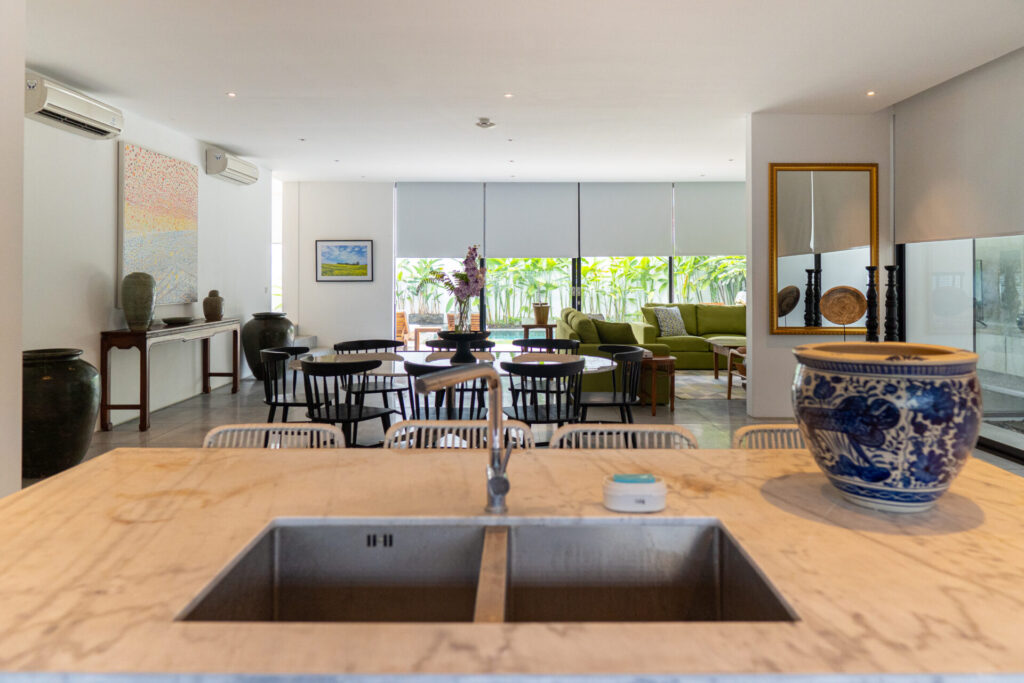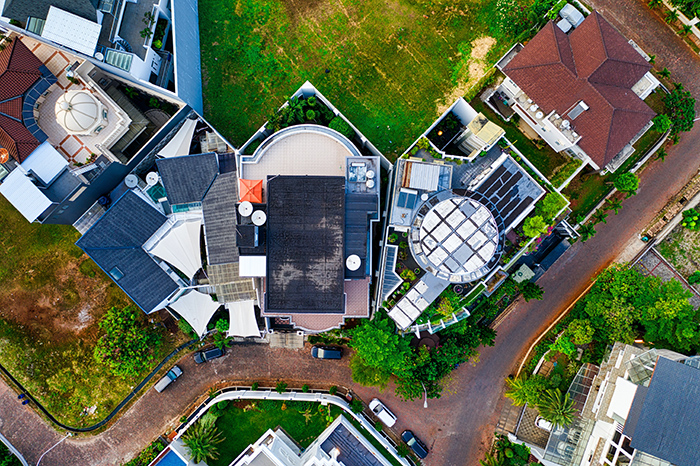
Bali’s in the news like never before. It’s like Covid never happened and return of tourism as in any event in the past is kicking back. And an amazing growth (in good and bad) of people wanting to reside here. As of now according to Ross Woods, a hospitality specialist based in Jakarta, a full recovery is likely to happen by 2024.
There’s a lot of exposure about this beautiful island paradise and its tourism industry, as well as property and uncontrolled developments again. There are a lot of critiques and arguments determined to stop hotel and villa developments in certain areas. Some would even argue there’s a price war going on between hotels and resorts.
One thing we can all agree on is that these issues need to be addressed properly, as they have the potential to pose a threat to Bali’s future. And we see firmer and firmer steps being taken by the central and provincial government to suspend further abuse of green belts and rice fields, as well as tighter regulations around permits to build and use any property.
A Norwegian eco-warrior and writer, Arild Molstad, wrote a book that deals with tourism destroying cultures and nature. It’s called Where Do We Go Before It’s Too Late: Two Faces Of Tourism. One of the chapters is about Bali.
Molstad concludes with the fact that Bali is sustaining its culture much better than most other places. Interestingly enough what attracted the first tourists to Bali was the unique culture and people, not the ‘great’ hedonistic lifestyle. What is the case today? We see an awful lot of community, eco, culture developments, mixed with the clear signal again from the government of no more figures for the sake of it, but quality, eco, sustainable, health, residential, etc.
We’ve got to try and keep what is so unique about this magical island. But how?
Well, we could start by realizing that Balinese and Indonesian culture is indeed a melting-pot of many; Indian, Chinese, Arab, and European. And it’s been evolving and integrating for generations. I remember being shown an article some time ago dealing with these issues written in the 1930s! So, it’s not exactly a new topic.
Everyone involved in Bali; people who live here and people who visit has an opinion on the threats and dangers, but no one seems to have a solution; all actions and reactions are based on protection and a rather subjective view of these issues often coming from a very personal need to keep Bali as it was when they found it.
Let’s look at some interesting facts and historical aspects. Some of these may not be to everyone’s liking, but it’s all meant to highlight issues for a better future for us all.
Land, Developments and Investments
Land is being bought up at high speed for developments and investments. The Balinese complain that soon they may not have any land of their own and their ancestors (leluhur) are upset. Some Balinese do gain tremendously on current land speculations too. The myth that it’s all expats and non-Balinese Indonesians, is not true.
The fact is that all these changes have happened through history many times, the only difference is now it’s happening a lot faster.
Here’s the rub, 82% of the economy of Bali is driven by tourism and property development. As an impact of COVID, we are now seeing attemps to also grow other business streams on the island. Which is good.
The average economic growth in Bali is less than most other Indonesian provinces. There is no industry or natural resources to dig into. So, how can anyone even suggest a stop on developments, tourism and now residential as well as health tourism, and soft tech/industry.
Balinese culture is in many views attached to farming and a deeply rooted way of life called Tri Hita Karana. This should be preserved, but does it mean that Wayan and Made for their entire lives have to work the rice fields in the traditional way, and not be allowed to work themselves out of a life that might not be the easiest? Does it mean that the Balinese culture cannot evolve and change?
Even Parisada (the Balinese Religious Board) discusses these issues quiet openly now.
Visitors and Tourism
Some people say the market growth has slowed down. But in 2015-2019 expat arrivals to Bali grew from 4.93 million to about 6.3 million, a growth of about 23%. Domestic arrivals grew from about 7 million to almost 9 million, a growth of about 25%.
If you take this growth of 3,37 million arrivals, and imagine all of these people stayed in double rooms, with an average stay of about four nights, divide the number of rooms needed per night by hotels with an average of 250 rooms, and you come to the realisation that Bali needs 30 new hotels every year to keep up with the growth!
What about the situation now?
If we look at expat arrivals it closed off for 2022 at about 2,3 million and about 3,9 million domestic tourists. This is between 35-40% of pre-covid figures.
What about the price war?
What price war?
Well, any serious international and domestic consultancy groups state that the average occupancy and room rate as well as average spending is at the same level, and in many cases it’s going up.
If someone builds a low-end hotel, with a terrible location, no concept, no management, no structure to it, what else do they have to compete with but price? This is what happens; the low end cannot keep up with the market, and I would argue this is good for the market and Bali’s future.
With a high inflow of people wanting to stay long term or semi-long term we can see prices, in particular in Canggu and surrounding areas but also other areas, continue to go up. And that is with 40% of normal market. What will be the situation when its fully recovered?
How can a moratorium on hotels be executed? What if Wayan has a hotel built on tourism zoned land, and is doing well, and Made next door wants to do the same but he is not allowed to? How can this be?
In 2015-2019, several ASEAN and SEA treaties with free flow of capital and labour kicked in, as well as several trade agreements with, among others, Australia so the only way that Bali and the Balinese, including expats living here, can keep up with everything is to provide the best possible service at the best possible price, which is again, good for Bali.
A protective mindset is not possible in these days of globalization.
Some people say it’s all to do with a corrupt government. This was partly true in the past, but it’s also to do with a corrupt market with investors, domestic and expat alike not wanting to follow regulations, pay taxes or think long-term for the benefit of the people in whose land they live and do business.
I’d say the government of Bali and Indonesia is changing a lot faster than the market, and that is good for Bali.
What are the solutions?
First of all what should be priorities? It’s simple – government, infrastructure and garbage. These should be the main focuses of our attention. Then all of us need to come together with solutions, not just criticisms.
We need long term solutions. We need to realize that what has started cannot be stopped. We can decide where we want take the Balinese tourism market. We need to focus on words like ‘eco’, ‘upmarket and integrated tourism’, ‘better zoning’, ‘real planning’ and so on.
Everyone doing villas, resorts, restaurants, shops, whatever it is; we all gain from it, and it’s our responsibility to drive this in the right direction.
I personally think Bali will find its way, and will still be that unique place that touches us all so deeply in many different ways.
Are you ready to step up to the plate?
If you’d like to learn more about owning property in Indonesia get in touch with us today through [email protected]

















